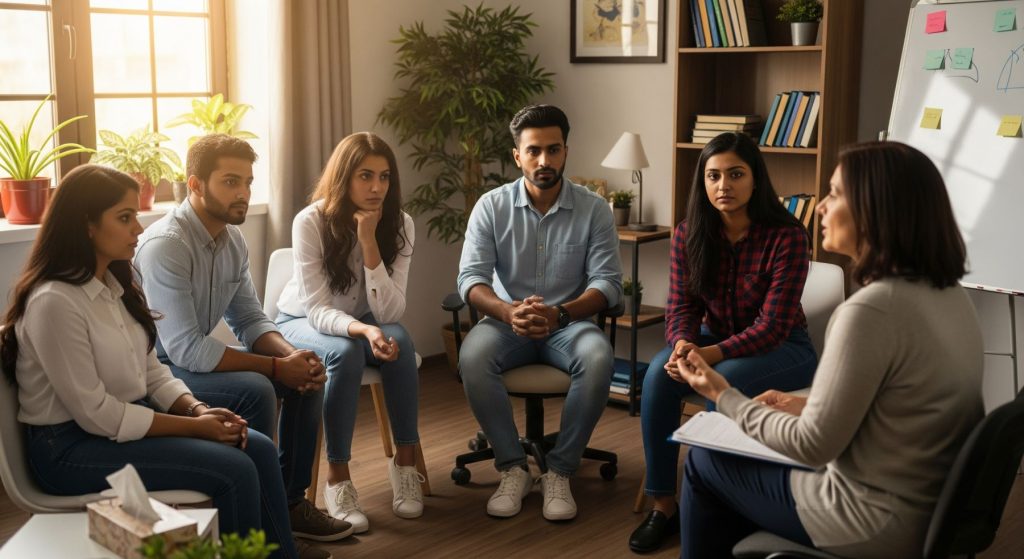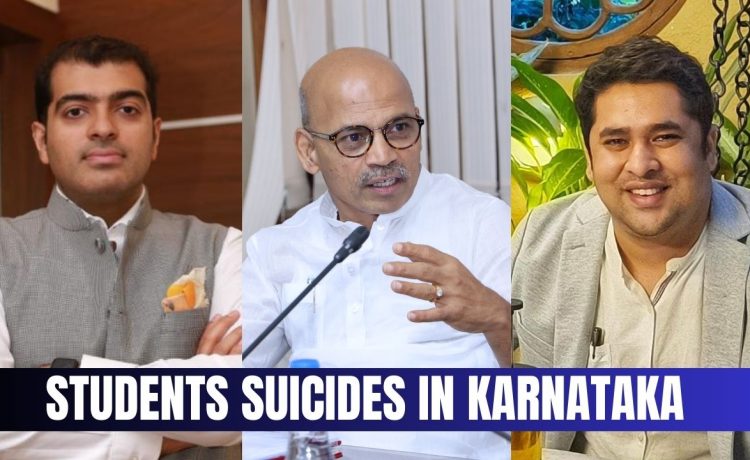Karnataka to Install Anti-Suicide Devices in Medical Hostels After Student Deaths
Bengaluru: In the wake of two student suicides at the Mandya Institute of Medical Sciences (MIMS) within two weeks, the Rajiv Gandhi University of Health Sciences (RGUHS) has announced plans to introduce anti-suicide devices on ceiling fans in medical hostels across Karnataka.
The deaths of MBBS student Bharat Yatthinamani (22) on July 22, 2025, and nursing student Nishkala (21) on August 2, 2025, have triggered urgent discussions on student safety and mental health support in higher education institutions.
Devices and How They Work
The proposed anti-suicide devices detach the fan from its hook when unusual weight is applied and activate a siren to alert nearby people. A pilot demonstration was held at MIMS, and alternative designs — like fixing fans directly to ceilings so they collapse under pressure — were also explored. RGUHS’s Curriculum Development Cell, headed by Dr. Sanjeev, conducted an on-site visit in late July to assess the feasibility. While the broader rollout plan is yet to be finalised, MIMS is expected to serve as the test location.
Officials and Leaders Respond
Karnataka’s Minister for Medical Education, Dr. Sharan Prakash Patil, said:
“It is very sad to hear about the suicide of medical students in Mandya. Stress, anxiety, and depression pushing students to take the extreme step is unfortunate. RGUHS is examining measures, including anti-suicide devices for ceiling fans, to prevent such incidents in the future. Counselling centres with professional counsellors are already in place in medical colleges, but more needs to be done.”
Educationist CM Faiz called for a deeper, long-term approach:
“The tragic loss of innocent young lives to suicide is a painful reminder that our education system must look beyond academics and focus on the emotional well-being of students. Alongside safety measures like anti-suicide devices, we must strengthen mental health support in all educational institutions. Every hostel should have trained counsellors, regular wellness workshops, and peer-support groups so that no student feels alone in their struggle.”
The Mental Health Dimension
Psychiatrist Dr. Faraz Syed Mohammed stressed that while physical safety measures can prevent impulsive acts, they are not a complete solution:
“Depression, anxiety, and other mental illnesses often go unnoticed. These must be identified and treated early. Devices are a superficial measure if we do not address the root causes. Removing stigma and encouraging students to seek help is essential.”

Students also highlighted the need for emotional support and community building.
-
Nida Ahmed, 3rd-year MBBS student: “Devices might stop an impulsive act, but we need more counsellors in hostels.”
-
Mahantesh, 2nd-year MBBS student: “The real solution is open conversations and ending stigma.”
-
Goutam, 2nd-year dental student: “Devices are a good safety measure, but they can’t replace empathy.”
-
Saniya Begum, 1st-year MBBS student: “Prevention must start much earlier than the crisis moment.”
Beyond Mechanical Solutions
Similar devices have been implemented in states like Rajasthan, where spring-loaded fans with alarms are mandatory in student hostels. However, experts agree that such measures should be integrated into a broader mental health strategy — including counselling services, peer-support programs, awareness campaigns, and early detection of psychological distress.
As Karnataka moves ahead with its pilot program, stakeholders say the challenge is not just to stop an act in progress but to address the emotional, academic, and social pressures that lead students to such breaking points.
Key Quotes
CM Faiz, Educationist:
“No degree is worth more than a life. Safety devices are important, but every hostel must also have trained counsellors and peer-support systems so that no student feels alone in their struggle.”
Dr. Sharan Prakash Patil, Minister for Medical Education:
“Stress, anxiety, and depression pushing students to the extreme step is unfortunate. We are examining safety devices and strengthening counselling services to prevent such tragedies.”
Dr. Faraz Syed Mohammed, Psychiatrist:
“Devices can prevent an impulsive act, but they are only part of the solution. Early identification, treatment, and removing stigma are key to saving lives.”
Ayesha Rahman, 3rd-year MBBS student:
“Anti-suicide devices might help in emergencies, but we need more counsellors and open conversations about mental health.”
![]()











